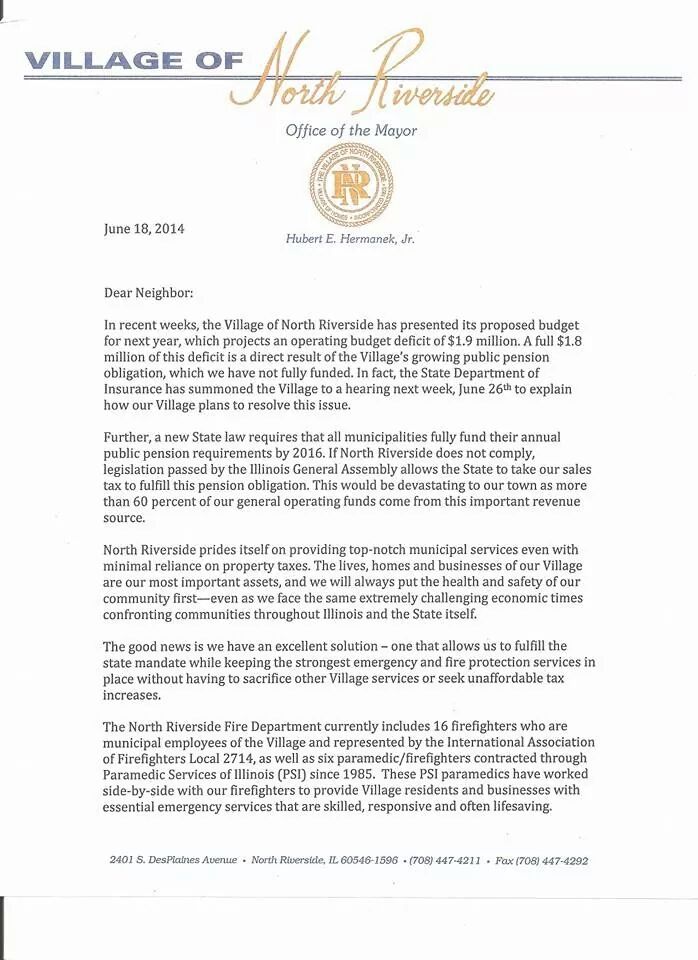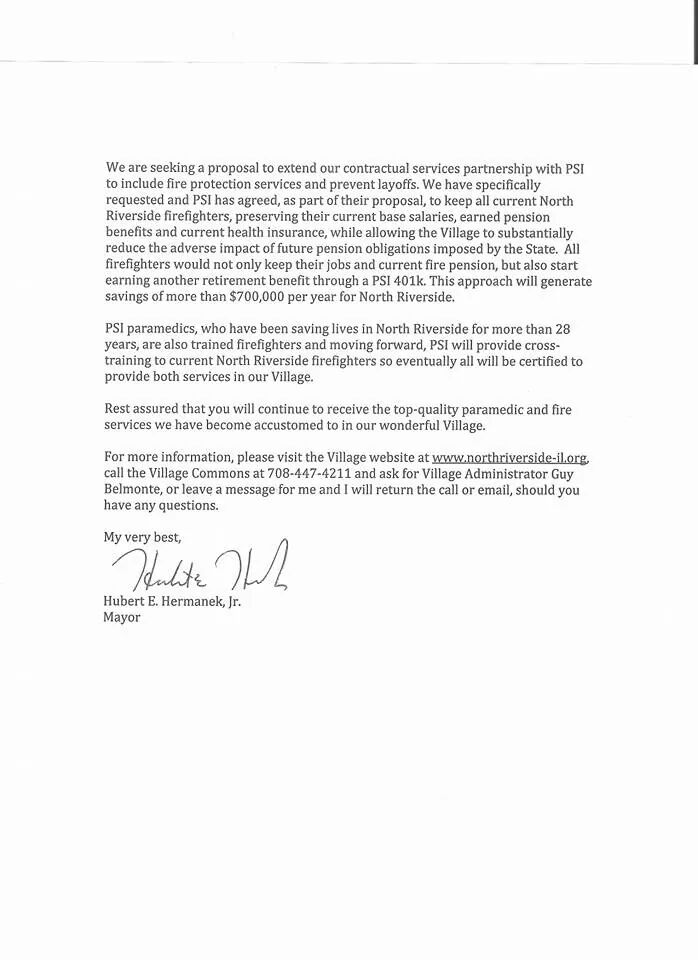An editorial article from PoliticsEarly&Often looks at municipal pension funds throughoutCook County:
There are 217 police and fire pension funds in suburban Cook County. The taxpayer-supported systems, with collective assets of nearly $5 billion, are intended to provide public safety workers and their families with stable retirement incomes. But a Better Government Association analysis found that dozens of local police and fire pension funds are in financial peril, putting retirement incomes at risk – as well as the fiscal health of numerous municipalities.
Rescuing the troubled funds may require tax hikes, service cuts or both, say experts. Already, some public safety agencies are looking to privatize or merge with neighboring departments in an effort to cut personnel and ease future pension payouts. Whatever the method, taxpayers can expect to bear a heavier cost burden because of the severe local pension shortfall. In all, unfunded liabilities for police and fire pension funds throughout suburban Cook County total $3.3 billion, according to a BGA analysis of the most recent municipal pension fund data.
Fifty-eight or roughly a quarter of the systems were less than half-funded, meaning there was fewer than 50 cents for every dollar owed in long-term benefits, according to the analysis. Generally, a minimum 80 percent funding is considered healthy. A state law approved in 2010 requires such pension plans to be 90 percent funded – by 2040.
At the current low funding levels the systems aren’t cushioned against investment losses, and may have to liquidate assets to pay benefits, raising the risk that some systems could run dry. In such a scenario, taxpayers could be responsible for any shortfall. If and how municipalities and pension funds can declare bankruptcy and get out from under financial obligations is unchartered terrain.
This municipal pension mess comes atop alarming money shortages in pension funds for employees of the State of Illinois, City of Chicago and Cook County. Each of those agencies has been trying to work out a legislative solution.
Without a doubt, the collective unfunded liabilities of those bigger pensions, in excess of $100 billon, are far greater than the combined suburban pension shortfall. However, the fire and police pension woes threaten to have a far greater financial impact on mid-sized and small municipalities because they have fewer viable options to raise revenues or cut costs to plug a pension hole.
Who’s to blame for the problems on the municipal level – where there’s been little public discussion about solutions – depends on who you ask. Observers say reasons include chronic underfunding, sluggish investment returns, overly generous benefits and, in some cases, potentially improper pension sweeteners.
Statewide there are 660 police and fire retirement systems outside Chicago. State law requires towns with 5,000 or more residents and which employ at least one full-time police officer or firefighter to create and administer pension systems for those workers. A fire protection district must create a fund if it employs at least one full-time firefighter.
In suburban Cook County there are 121 police and 80 fire pension funds, plus 16 separate fire protection district pension funds. In all, there are 5,900 annuitants; an additional 8,500 police and firefighters could collect a pension down the road.
The BGA reviewed the finances of each system – by analyzing documents, and contacting every pension agency or municipality – and found 204, or 94 percent, were below the 80 percent threshold.
Other revelations include:
- The fire pension funds in Blue Island, Cicero and Melrose Park have just 32 cents for every dollar owed, the lowest among systems with at least $2 million in assets.
- On the police side, Blue Island, Burnham, Summit and Willow Springs ranked among the lowest, each with less than 30 cents for every dollar owed.
- Until recently the Stone Park police fund had just seven cents for every dollar owed. The village issued a $2 million bond in April, in essence borrowing money to pay its pension debts. Its funding ratio now stands at an estimated 23 percent, the fund’s attorney says.
- A search of municipal and state records uncovered examples of alleged pension sweetening in Alsip, Blue Island and at the Pleasantview Fire Protection District. In Alsip, for example, two police officers retired days after receiving “longevity bonuses” of more than $20,000 each. Over their lifetimes those pay bumps could result in total additional pension payments of $1.8 million, according to a BGA analysis.
- From 2010 to 2013, the total annual required contributions for Harvey’s police and fire funds was $10.1 million. State records show the south suburb, however, paid just $140 during that four-year span.
The Illinois Department of Insurance oversees pension funds statewide but historically there was little the agency could do if public safety workers got a last-minute pension boost, or a municipality didn’t meet its obligations. The department could levy a modest civil penalty but such fines were rarely issued. In short, there’s been little oversight to this point. Soon there could be repercussions, though.
The state law adopted by legislators in 2010 also empowers pension funds to intercept (in gradually increasing increments) sales taxes, grants and other revenues owed to the towns by the state if the required contributions aren’t made. That doesn’t take effect until 2016 but the law’s impact is already being felt, though not necessarily in ways that rank-and-file police and firefighters may appreciate.
North Riverside may privatize its fire department in part because of concerns that the village would go broke if it couldn’t afford its pension obligations and state revenues were intercepted, North Riverside Village Attorney Burt Odelson says.
The BGA found at least three other Cook County suburbs – Chicago Ridge, Forest View and McCook – are exploring or have already picked a cost-saving alternative to a municipal-run fire department. Rising pensions costs and concerns that precious state revenues could be garnished has brought the towns to this point. Chicago Ridge and Forest View are weighing the benefits of joining a fire protection district, or paying a neighboring town to provide the emergency service, among other options.
McCook, however, has made up its mind to shutter its fire department and hire a private company. Beginning Aug. 4, employees of New Lenox-based Kurtz Paramedic Service Inc. will fight fires and respond to emergency calls, says McCook Mayor Jeff Tobolski, adding the move will save an estimated $600,000 annually.
thanks Dan




















































